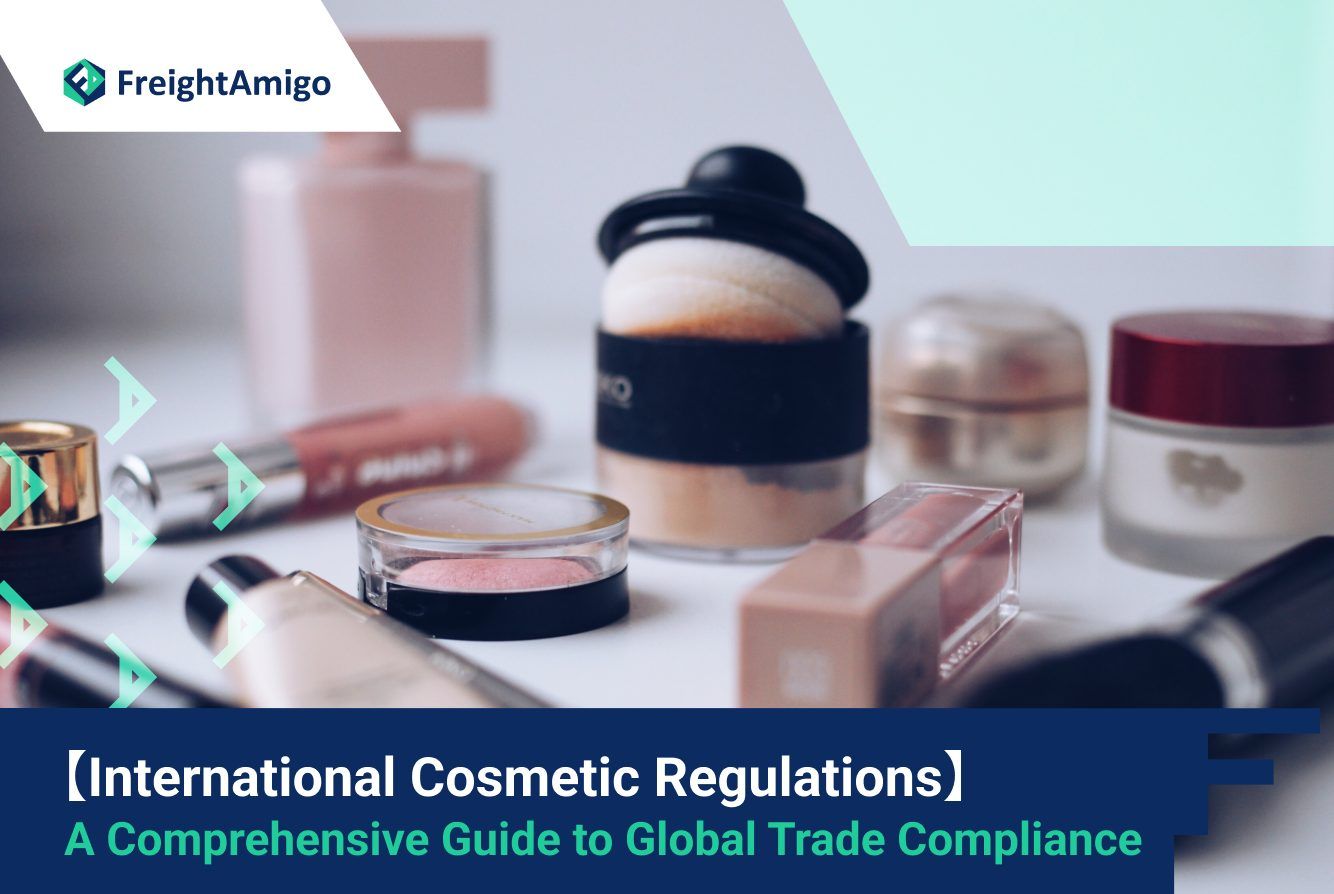International Cosmetic Regulations 2025: Global Trade Compliance Guide
TL;DR: This 2025 guide covers key international cosmetic regulations for importers/exporters, FDA/ICCR roles, import alerts, export certificates, EU/China/2025 updates, and compliance tips to ensure safe global trade.
Author Name: Tiffany Lee – Marketing Analyst at FreightAmigo
Updated: 2025-10-27
Why International Cosmetic Regulations Matter in 2025
The global cosmetics market is projected to exceed $500 billion by 2025, demanding strict international cosmetic regulations for safety and trade fairness. These rules protect consumers from harmful ingredients while enabling smooth cross-border shipments.
- Prevent health risks from banned substances like mercury or parabens.
- Harmonize standards via ICCR to cut trade barriers.
- Address 2025 national updates, e.g., China's expanded ingredient catalog.
- Boost exporter confidence with clear compliance pathways.
- Support sustainable practices amid rising eco-regulations.
FDA's Key Role in International Cosmetic Regulations
The FDA leads U.S. efforts in global cosmetic compliance, collaborating internationally to align standards and minimize disruptions in 2025 trade volumes.
Through the International Cooperation on Cosmetics Regulations (ICCR), FDA works with EU, Japan, Canada, and Brazil on harmonization.
| ICCR Member | Focus Area | 2025 Update |
|---|
| USA (FDA) | Import alerts | AI-driven surveillance |
| EU | Banlist expansion | 1400+ banned substances |
| Japan | Quasi-drug rules | UV filter reforms |
| Canada | Labeling | Bilingual mandates |
| Brazil | Local testing | Digital notifications |
2025 Importer Requirements for Cosmetics: US Focus
Importers must navigate FDA guidelines and CBP rules for seamless U.S. entry of cosmetics in 2025, avoiding delays from non-compliance.
- Register facilities via VCRP if applicable.
- Ensure no prohibited ingredients (e.g., color additives).
- Prepare labeling compliant with Fair Packaging Act.
- Monitor FDA import alerts for refused shipments.
- Use electronic filing for faster clearance.
2025 sees enhanced digital tools for real-time compliance checks.
Understanding FDA Import Alerts and Surveillance in 2025
FDA import alerts target high-risk cosmetics, refusing entry without inspection to uphold safety standards amid 2025 supply chain surges.
- Alert 66-41: Unapproved color additives.
- Alert 66-50: Microbial contamination risks.
- 2025 expansion: Nano-materials scrutiny.
- Check FDA's database weekly for updates.
- Appeal process available for disputes.
US Customs Collaboration for Cosmetic Imports 2025
Partnering with U.S. Customs and Border Protection (CBP) is essential for cosmetics importers facing stricter 2025 enforcement on declarations.
Key steps include accurate HTS codes (e.g., 3304 for lipsticks) and invoice details.
Exporter Requirements: Cosmetic Export Certificates 2025
U.S. exporters need FDA export certificates to prove compliance for international cosmetic shipments in 2025, especially to strict markets like EU.
- Apply via FDA's CAP online portal.
- Types: Certificate to Foreign Government (CFG), Export Certificate.
- Fees: $175-$625 based on scope.
- Processing: 2-3 business days digitally.
- 2025 tip: Pre-apply for high-volume routes.
EU, China & Global Cosmetic Regulations Update 2025
2025 brings major shifts in EU REACH and China NMPA rules, impacting global trade compliance beyond FDA.
- EU: New allergen labeling by March 2025.
- China: CSAR registration mandatory for imports.
- ASEAN: Harmonized cosmetic directive (ACCD).
- Australia: AIIC database integration.
- India: BIS standards for select categories.
FAQ: International Cosmetic Regulations 2025
Quick answers to top People Also Ask queries on cosmetic trade compliance.
- What are FDA cosmetic import requirements? Importers must ensure no banned ingredients and proper labeling; no pre-market approval needed except colors.
- Which countries ban animal-tested cosmetics? EU, India, Israel, and others prohibit sales of animal-tested products since 2013-2025 phases.
- How to get FDA export certificate for cosmetics? Apply online via CAP with product details; issued within days for compliant goods.
- What is ICCR in cosmetics? A voluntary group harmonizing safety assessments across US, EU, Japan, Canada, Brazil.
- Are nanomaterials regulated in cosmetics 2025? Yes, EU requires notification; FDA monitors voluntary data.
- China cosmetic import rules 2025? Mandatory CSAR registration and stability testing via NMPA.
- Common FDA import alerts for cosmetics? Alerts cover adulterated colors, microbes, and unlisted drugs.
- EU cosmetic ban list size? Over 1,400 substances banned or restricted under Annex II/III.
- How to check cosmetic compliance globally? Use INCI names against regional databases like Cosing or PCPC.
- 2025 animal testing ban status? Global push via ICCR; most markets accept alternatives like in vitro tests.
Conclusion: Master Global Cosmetic Trade Compliance
Staying ahead of 2025 international cosmetic regulations ensures safe, efficient trade. For expert logistics support, Book a Demo with FreightAmigo.
Contact: +852 24671689 (HKG Business) | enquiry@freightamigo.com
Resources: 2025 FDA case study - 95% compliance rate with digital CAP filings reduced export delays by 40%.

